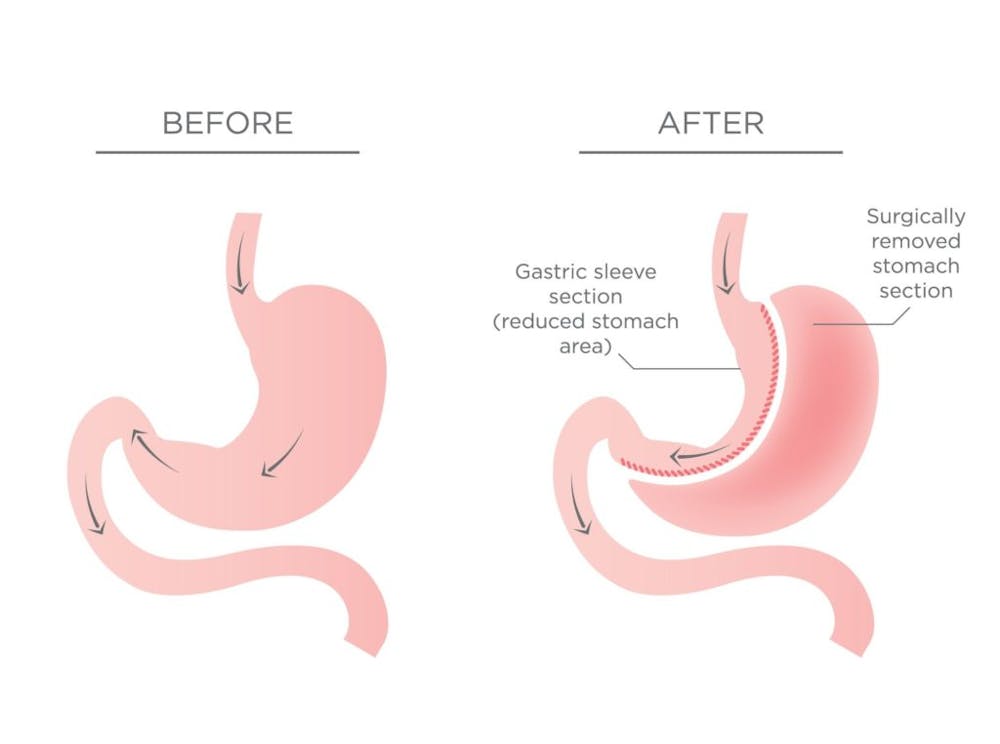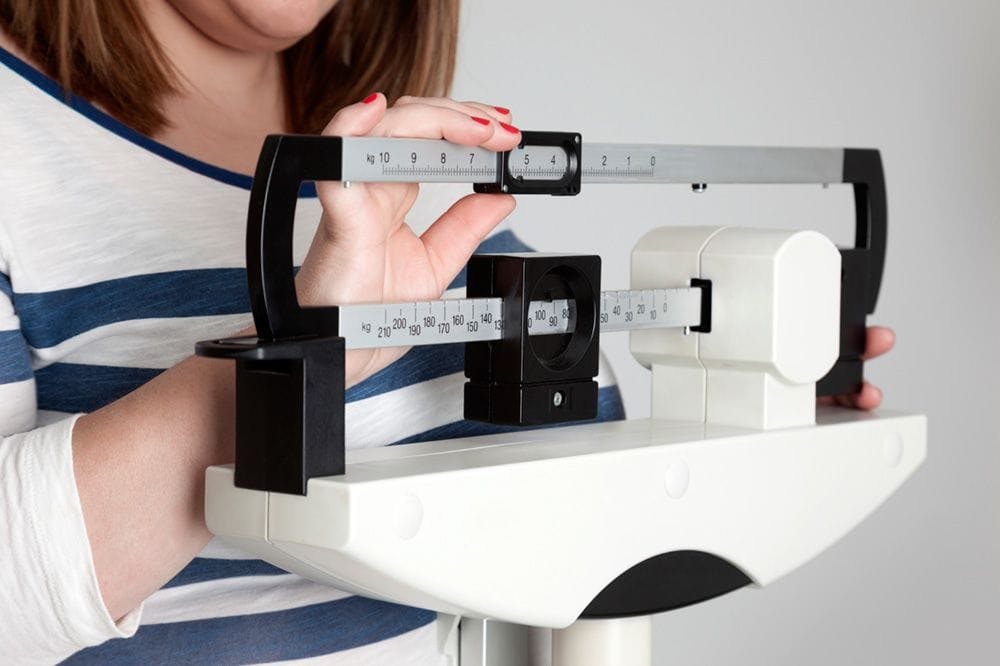Medical Weight Loss and You
Are you seeking weight loss? Patients with a body mass index (BMI) over 30 are at a higher risk of developing medical health conditions such as hypertension, heart disease, cancer, and sleep apnea. Despite this increased risk, the struggle to lose weight and keep if off can be a long and frustrating experience for many individuals. Fortunately, the doctors networking with the Tijuana Bariatric Center provide bariatric surgery and nutrition counseling to promote medical weight loss for patients who undergo treatment in Tijuana, Mexico. We understand that choosing a bariatric surgeon is an important decision and can provide all the information you need to move forward.

What is Medical Weight Loss?
During a medical weight loss program, the physician will help guide the patient through the various steps of treatment, assisting in the management of diet, fitness, and other healthy lifestyle behaviors.
By combining surgical and non-surgical practices, the two options can work hand-in-hand to deliver the most transformative, long-lasting results.
While some practitioners and medical facilities focus primarily on non-surgical weight loss solutions, the doctors within our network specialize in surgical techniques. By combining surgical and non-surgical practices, the two options can work hand-in-hand to deliver the most transformative, long-lasting results.
How Bariatric Surgery Can Improve Your Health
Severe obesity is a serious stage of the condition that has both mental and physical effects. Obese patients often experience a reduced quality of life and major health complications that can develop into heart disease or depression, among other concerns, and even result in death. During bariatric surgery, the gastrointestinal tract is altered, which causes physiologic changes in the body. By combining surgical intervention with a structured treatment plan, patients can achieve long-term success and improved longevity. For the right patients, achieving a healthier weight can also also improve fertility and improve their chances of becoming pregnant.

With the aid of bariatric surgery, weight loss can be dramatic and life-changing. Our Tijuana, Mexico, practice coordinates care so patients on any budget can reap the benefits of low-cost surgical weight loss treatment. Tijuana Bariatric Center has the tools you need to maximize results by losing weight and keeping it off. We also encourage patients to seek support to further refine their new, healthy habits.
LAP-BAND® surgery restricts the size of the stomach pouch, so the patient feels full faster, eats less, and loses weight. Weight loss is slower with this procedure compared to other bariatric surgeries, but it is less invasive and easily reversible. With the LAP-BAND®, patients may lose up to 70% of their excess weight and continue losing weight for up to three years. However, this gastric band requires patients to strictly adhere to the postoperative diet.

Gastric Bypass
Patients who undergo gastric bypass surgery report losing as many as 10 to 20 pounds per month up to a year after surgery. Overall, many patients lose as much as 60-80% of their excess weight. This procedure may lead to conditions that increase a patient’s energy expenditure. It also produces changes in the hormones that enhance the feeling of fullness and reduce the patient's appetite.
Patients who undergo gastric bypass surgery report losing as many as 10 to 20 pounds per month up to a year after surgery. Overall, many patients lose as much as 60-80% of their excess weight.
Patients typically maintain more than 50% of excess weight loss. In order to maintain optimal health, patients must stick to strict dietary guidelines as well as vitamin and mineral supplementation.
Mini Gastric Bypass
This type of gastric bypass limits how much the patient can eat and how many calories they absorb from their food. The mini gastric bypass procedure offers similar results to gastric bypass. Patients often report losing up to 80-85% of their excess weight.
Duodenal Switch Surgery
This procedure can offer dramatic results. Within three years, many patients report losing up to half of their original weight. As with the gastric bypass procedure, duodenal switch surgery impacts the hormones to decrease hunger and increase feelings of fullness. It also helps improve blood sugar control. Patients who undergo this procedure must strictly follow dietary and vitamin supplementation guidelines.
Gastric Sleeve Plication
With gastric sleeve plication, which restricts the stomach's capacity using an internal fold, a patient’s hunger is satisfied with considerably less food. This procedure can result in a loss of 30-55% of excess weight. While these results are not as dramatic as with other procedures, gastric sleeve plication surgery is easier to revise or undo if the patient is not satisfied.
Gastric Sleeve Surgery
This surgery reduces the capacity of the stomach and thus the patient’s hunger, which can cause rapid and significant weight loss. In as little as four to six months, gastric sleeve surgery patients may lose as much as half their original weight. Similar to gastric bypass surgery, patients may experience maintenance of more than 50% of excess weight loss. Without following the strict dietary recommendations and vitamin supplementation, however, patients can suffer from long-term vitamin deficiencies.
After the Surgery
Bariatric surgery is an aid to weight loss, not a cure. Many of the procedures available through Tijuana Bariatric Center require patients to follow strict dietary recommendations as well as vitamin and mineral supplementation. Failure to do so could lead to severe dietary deficiencies that can lead to other health problems.
Patients should be committed to making healthy lifestyle changes, including strictly following the recommended diet and getting sufficient exercise. Surgery and diet alone will not be sufficient for patients to keep off the weight.
Live a Longer and Healthier Life
Morbid obesity and excessive weight can make it extremely difficult to participate in physical activities and comfortably complete everyday tasks. An inability to lose excess weight can result in mental anguish and frustration, and more concerning, result in serious medical conditions.
For patients seeking medical weight loss through bariatric surgery, the cost of surgery is simply too expensive, leaving them with few options. At Tijuana Bariatric Center, we can help patients achieve amazing results with affordable bariatric surgery procedures. If you would like more information on how medical weight loss can change your quality of life, please contact us online or call 1-800-970-0577 to set up a consultation.
With the aid of bariatric surgery, weight loss can be dramatic and life-changing. Our Tijuana, Mexico, practice coordinates care so patients on any budget can reap the benefits of low-cost surgical weight loss treatment. Tijuana Bariatric Center has the tools you need to maximize results by losing weight and keeping it off. We also encourage patients to seek support to further refine their new, healthy habits.
LAP-BAND® surgery restricts the size of the stomach pouch, so the patient feels full faster, eats less, and loses weight. Weight loss is slower with this procedure compared to other bariatric surgeries, but it is less invasive and easily reversible. With the LAP-BAND®, patients may lose up to 70% of their excess weight and continue losing weight for up to three years. However, this gastric band requires patients to strictly adhere to the postoperative diet.
Gastric Bypass
Patients who undergo gastric bypass surgery report losing as many as 10 to 20 pounds per month up to a year after surgery. Overall, many patients lose as much as 60-80% of their excess weight. This procedure may lead to conditions that increase a patient’s energy expenditure. It also produces changes in the hormones that enhance the feeling of fullness and reduce the patient's appetite.
Patients who undergo gastric bypass surgery report losing as many as 10 to 20 pounds per month up to a year after surgery. Overall, many patients lose as much as 60-80% of their excess weight.
Patients typically maintain more than 50% of excess weight loss. In order to maintain optimal health, patients must stick to strict dietary guidelines as well as vitamin and mineral supplementation.
Mini Gastric Bypass
This type of gastric bypass limits how much the patient can eat and how many calories they absorb from their food. The mini gastric bypass procedure offers similar results to gastric bypass. Patients often report losing up to 80-85% of their excess weight.
Duodenal Switch Surgery
This procedure can offer dramatic results. Within three years, many patients report losing up to half of their original weight. As with the gastric bypass procedure, duodenal switch surgery impacts the hormones to decrease hunger and increase feelings of fullness. It also helps improve blood sugar control. Patients who undergo this procedure must strictly follow dietary and vitamin supplementation guidelines.
Gastric Sleeve Plication
With gastric sleeve plication, which restricts the stomach's capacity using an internal fold, a patient’s hunger is satisfied with considerably less food. This procedure can result in a loss of 30-55% of excess weight. While these results are not as dramatic as with other procedures, gastric sleeve plication surgery is easier to revise or undo if the patient is not satisfied.
Gastric Sleeve Surgery
This surgery reduces the capacity of the stomach and thus the patient’s hunger, which can cause rapid and significant weight loss. In as little as four to six months, gastric sleeve surgery patients may lose as much as half their original weight. Similar to gastric bypass surgery, patients may experience maintenance of more than 50% of excess weight loss. Without following the strict dietary recommendations and vitamin supplementation, however, patients can suffer from long-term vitamin deficiencies.
After the Surgery
Bariatric surgery is an aid to weight loss, not a cure. Many of the procedures available through Tijuana Bariatric Center require patients to follow strict dietary recommendations as well as vitamin and mineral supplementation. Failure to do so could lead to severe dietary deficiencies that can lead to other health problems.
Patients should be committed to making healthy lifestyle changes, including strictly following the recommended diet and getting sufficient exercise. Surgery and diet alone will not be sufficient for patients to keep off the weight.

